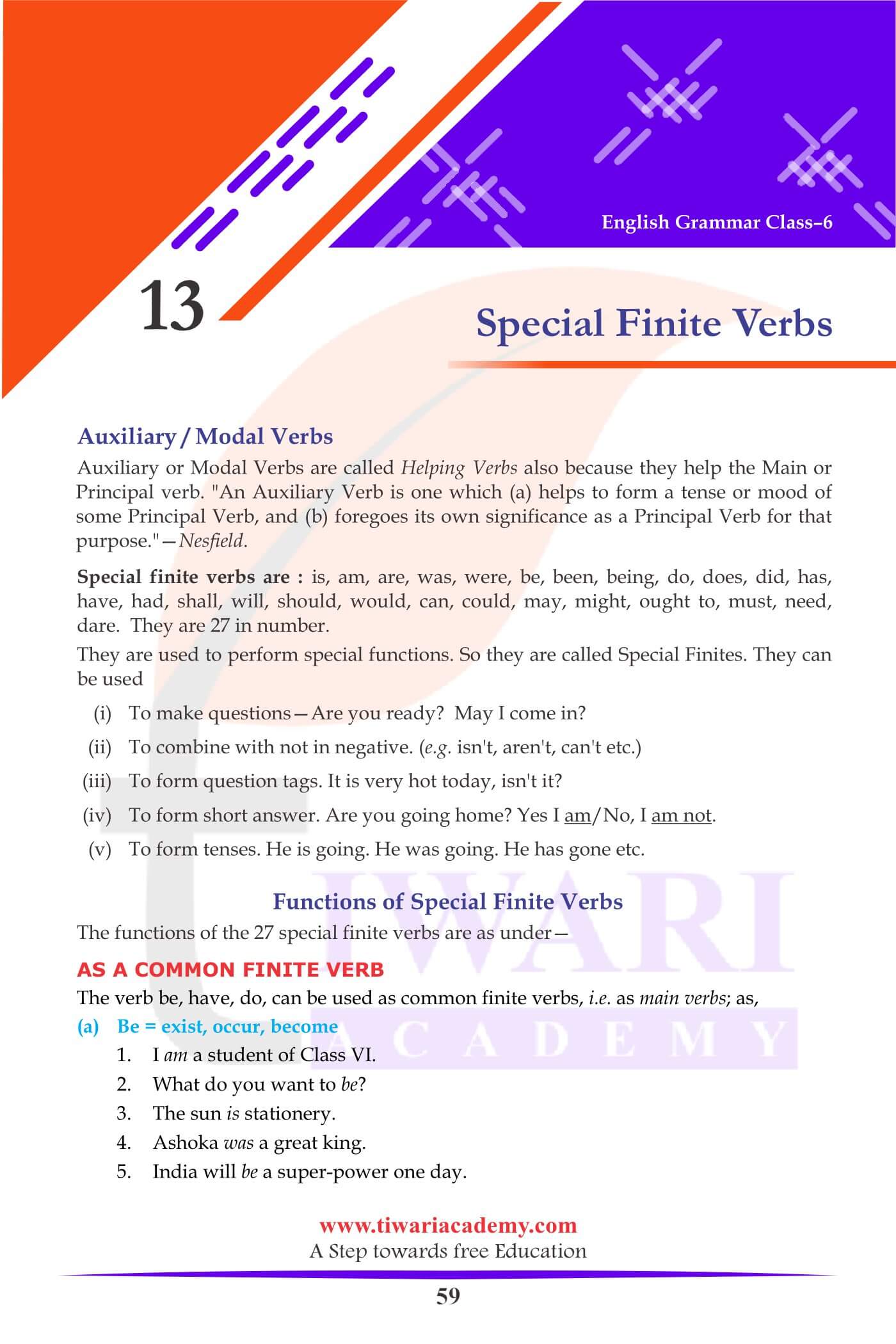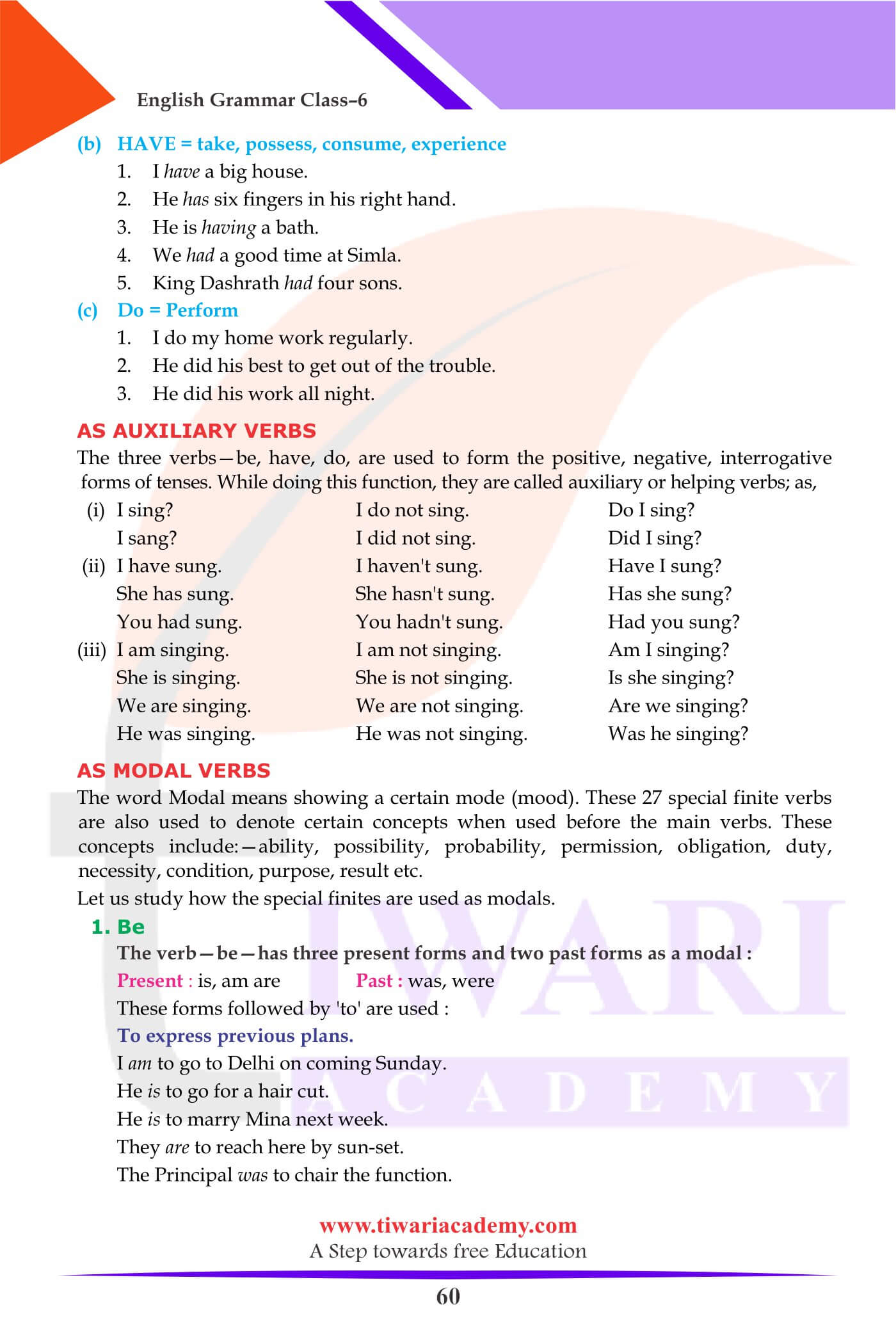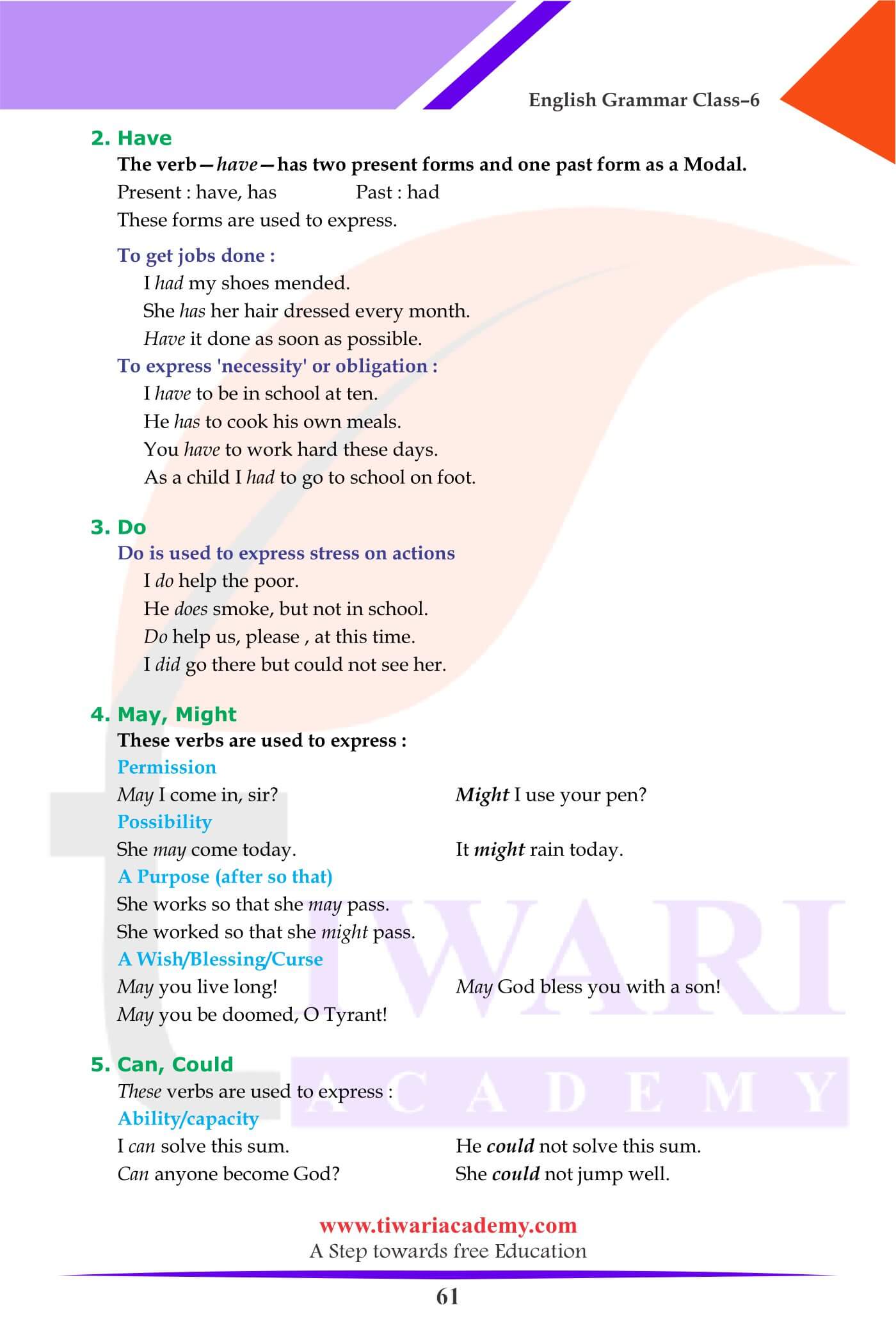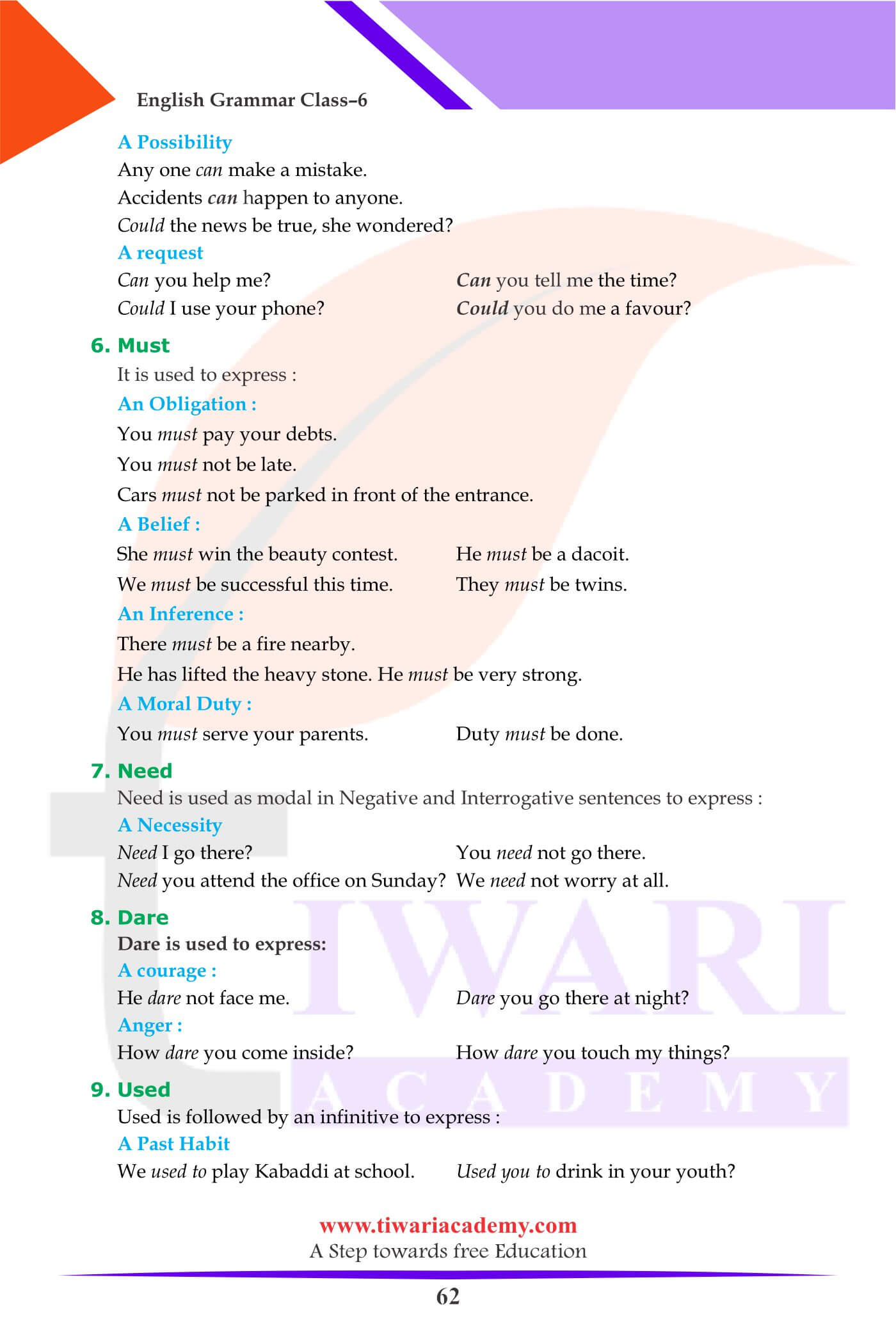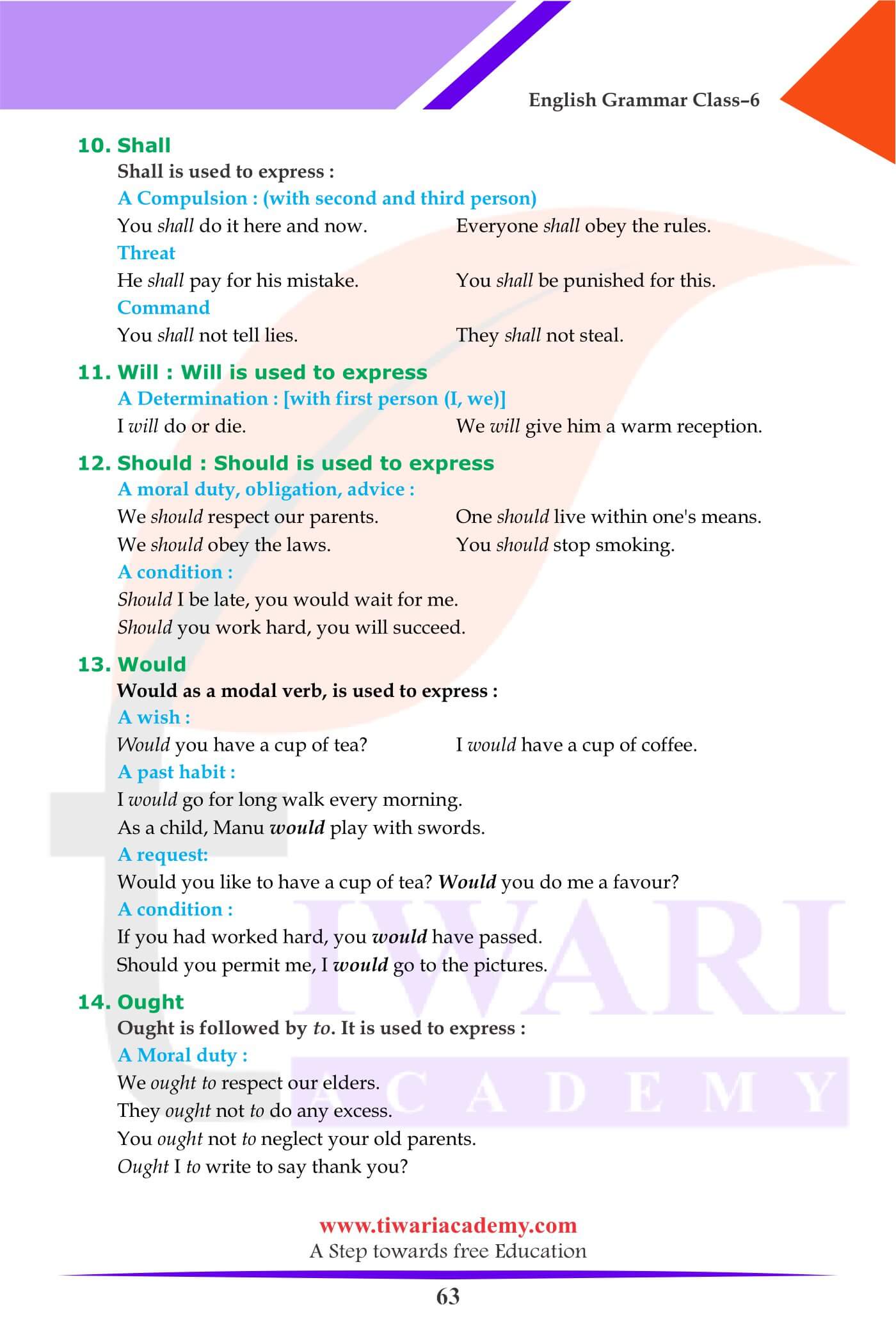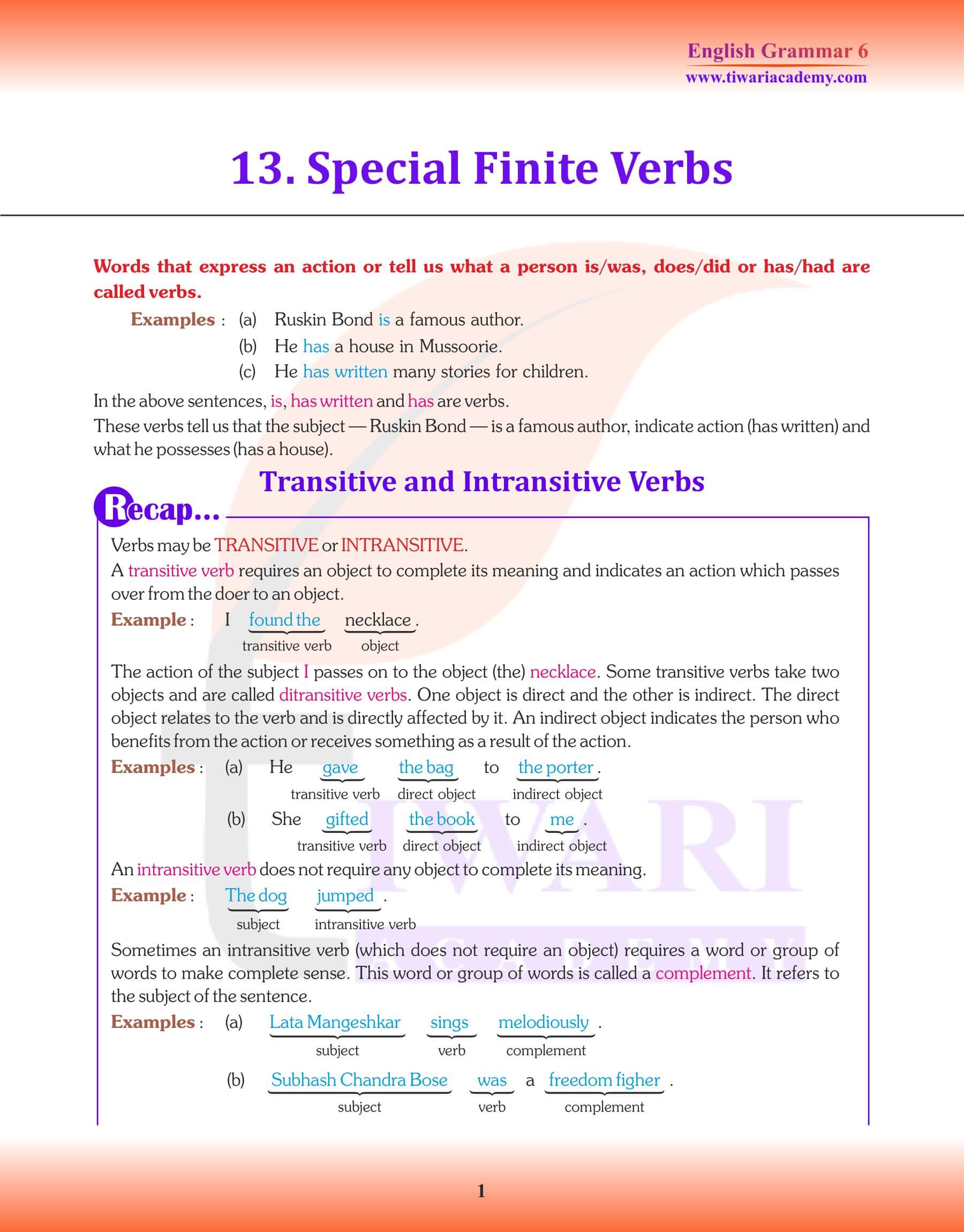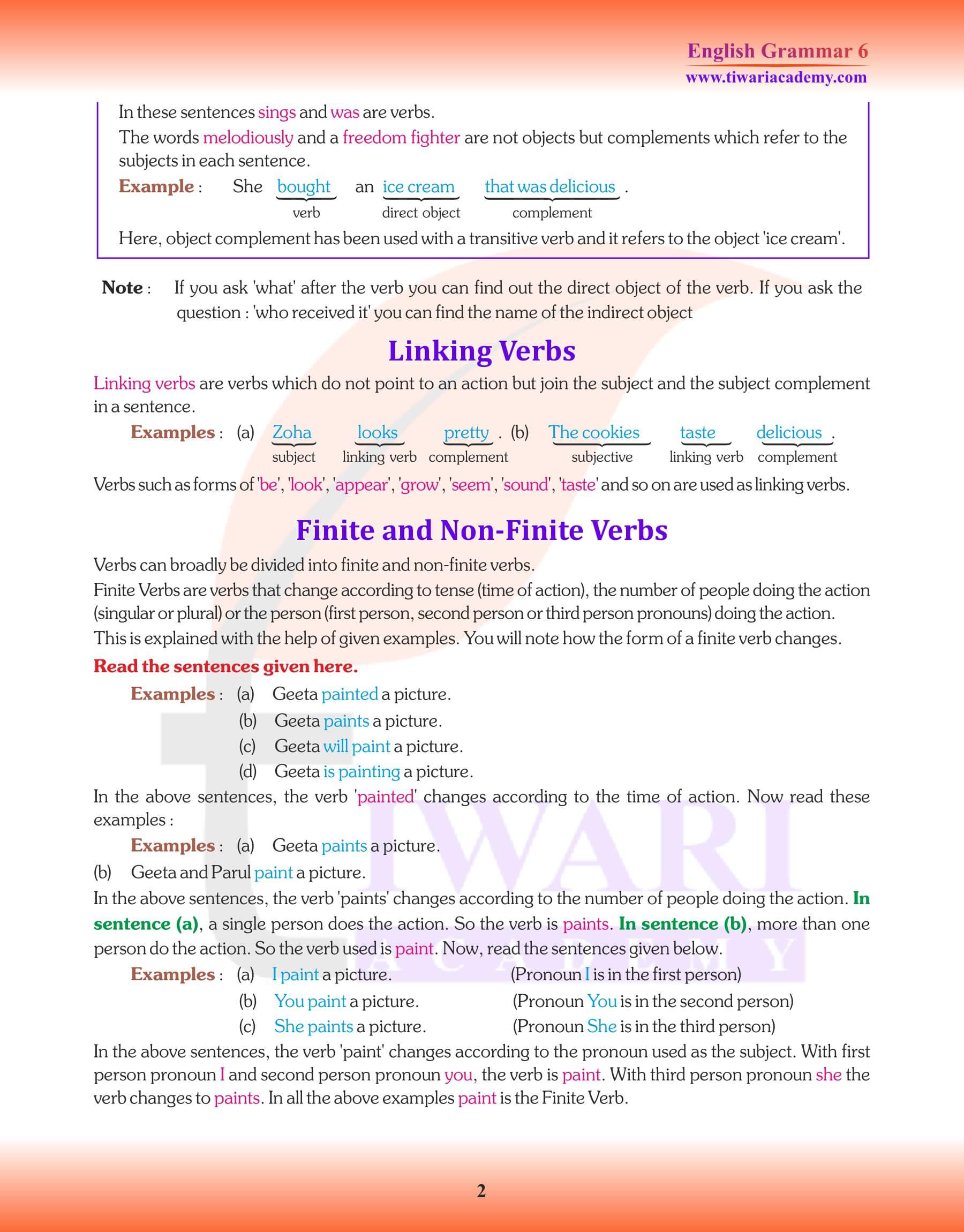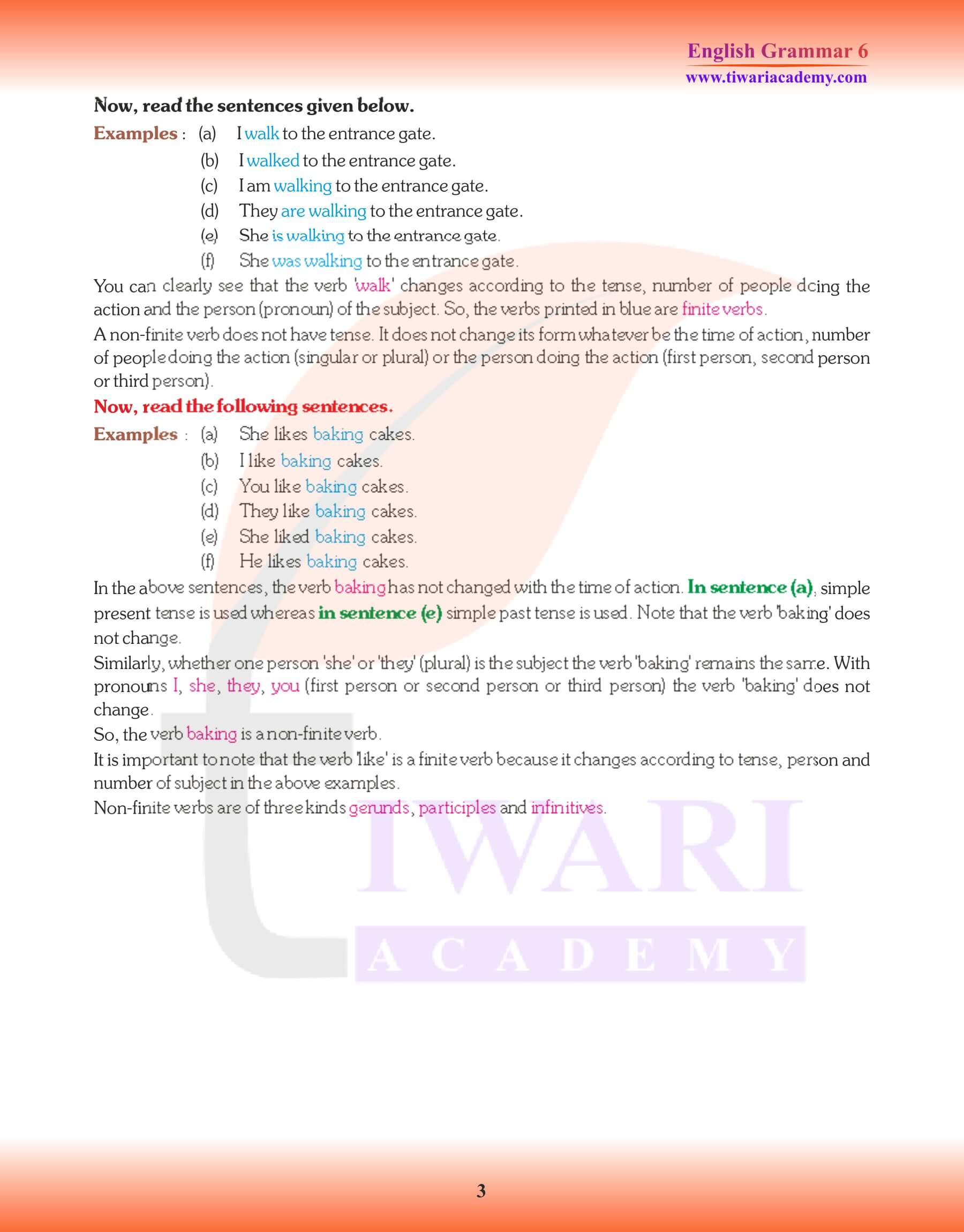Class 6 English Grammar Chapter 13 Special Finite Verbs, Auxiliary / Modal Verbs, Functions of Special Finite Verbs. Auxiliary or Modal Verbs are called Helping Verbs also because they help the Main or Principal verb. “An Auxiliary Verb is one which (a) helps to form a tense or mood of some Principal Verb, and (b) foregoes its own significance as a Principal Verb for that purpose.”—Nesfield.
Class 6 English Grammar Chapter 13 Special Finite Verbs
Special finite verbs
Special finite verbs are – is, am, are, was, were, be, been, being, do, does, did, has, have, had, shall, will, should, would, can, could, may, might, ought to, must, need, dare. They are 27 in number.
They are used to perform special functions. So they are called Special Finites. They can be used
- To make questions: Are you ready? May I come in?
- To combine with not in negative. (e.g. isn’t, aren’t, can’t etc.)
- To form question tags. It is very hot today, isn’t it?
- To form short answer. Are you going home? Yes I am/No, I am not.
- To form tenses: He is going, He was going, He has gone etc.
Common Finite Verb
The verb be, have, do, can be used as common finite verbs, i.e. as main verbs; as,
- Use of Be (exist, occur, become)
1. I am a student of Class VI.
2. What do you want to be?
3. The sun is stationery. - Use of HAVE = take, possess, consume, experience
1. I have a big house.
2. He has six fingers in his right hand. - Use of Do (Perform)
1. I do my home work regularly.
2. He did his best to get out of the trouble.
Auxiliary Verbs
The three verbs—be, have, do, are used to form the positive, negative, interrogative forms of tenses. While doing this function, they are called auxiliary or helping verbs.
| Positive | Negative | Interrogative |
|---|---|---|
| I sing? | I do not sing. | Do I sing? |
| I sang? | I did not sing. | Did I sing? |
| I have sung. | I haven’t sung. | Have I sung? |
| She has sung. | She hasn’t sung. | Has she sung? |
| You had sung. | You hadn’t sung. | Had you sung? |
| I am singing. | I am not singing. | Am I singing? |
| She is singing. | She is not singing. | Is she singing? |
| We are singing. | We are not singing. | Are we singing? |
Modal Verbs
The word Modal means showing a certain mode (mood). These 27 special finite verbs are also used to denote certain concepts when used before the main verbs. These concepts include: ability, possibility, probability, permission, obligation, duty, necessity, condition, purpose, result etc.
Use of Be
The verb “be” has three present forms and two past forms as a modal:
Present: is, am are
Past: was, were
These forms followed by “to” are used:
To express previous plans.
- I am to go to Delhi on coming Sunday.
- He is to marry Mina next week.
- They are to reach here by sun-set.
